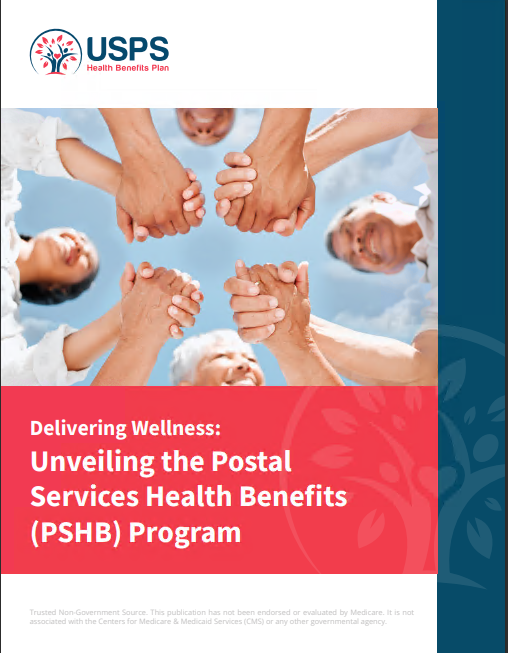Key Takeaways
- Open Season is your opportunity to review and make changes to your health coverage for the upcoming year, with special considerations this year due to the transition from FEHB to PSHB for postal workers.
- Understanding Medicare integration and plan options is essential, especially for Medicare-eligible retirees, to maintain coverage in the new Postal Service Health Benefits (PSHB) program.
Ready for Open Season? Here’s What You Need to Know
Hey there! Open Season is almost here, and if you’re a postal worker or retiree, you’re in for some changes. This year marks the big transition from the Federal Employees Health Benefits (FEHB) program to the brand-new Postal Service Health Benefits (PSHB) program. So, whether you’re choosing a new plan or just want to understand what’s changing, this is the time to make sure you’re set for a smooth transition.Open Season Timeline and Why It Matters
November 11 to December 9, 2024 The Open Season for the PSHB program this year runs from November 11 to December 9, giving you a few weeks to enroll, re-evaluate your options, or make any necessary changes to your current plan. Any changes you make during this period will go into effect on January 1, 2025. If you don’t take any action, you’ll automatically be enrolled in a corresponding PSHB plan that mirrors your existing FEHB coverage. But don’t just rely on automatic enrollment—taking a few minutes to review your options is always a smart move.PSHB vs. FEHB: What’s Different?
The PSHB program was specifically designed with postal workers in mind. So while many aspects of coverage remain similar, some changes are worth paying attention to:- Plan Options: PSHB will offer a variety of plan options tailored for postal workers and their families. These options include a mix of traditional and high-deductible plans, so take some time to assess what fits best for you.
- Premiums: While premiums will vary based on the plan you select, the PSHB program is expected to keep costs manageable for postal workers.
- Automatic Enrollment: If you’re already enrolled in FEHB and don’t make any changes, you’ll be auto-enrolled in a corresponding PSHB plan. You’ll receive a notification about this soon, so be sure to keep an eye on your mailbox or email.
Reviewing Your Health Plan Needs
Consider Your Current Health Needs
First things first—consider your current health situation. Do you expect any big health changes in the coming year? Maybe you’re anticipating the need for more doctor visits, or perhaps you’re managing a chronic condition. These factors can influence whether a high-deductible plan or a more traditional option is the better choice.Think About Your Budget
It’s essential to review what you’ve been paying versus what you can expect to pay under the PSHB program. Since you’ll find a range of premiums based on coverage levels, you might want to compare plans to see if switching could save you money.Family Coverage
If you’re covering a spouse or dependents, now’s the time to see if they’re still on the right plan. Changes in your family situation, like a new baby or an adult child aging out of coverage, may mean it’s time to switch plans.The Importance of Medicare Enrollment for Retirees
If you’re Medicare-eligible, this Open Season brings some important updates. With PSHB, certain Medicare-eligible postal retirees and their Medicare-eligible dependents must enroll in Medicare Part B to keep their PSHB coverage. However, if you retired before January 1, 2025, and aren’t already enrolled in Medicare Part B, you may qualify for an exemption.What Medicare Part B Covers
Medicare Part B typically covers outpatient services, including doctor visits, preventive care, and medical equipment. For many retirees, adding Part B offers a more comprehensive health plan since it can work together with your PSHB plan to reduce your out-of-pocket costs. Just remember that Medicare Part B does have a monthly premium, so you’ll want to factor that into your budget if you’re not yet enrolled.Important Details About the Transition to PSHB
No Need to Re-Enroll, But It’s Wise to Review
Automatic enrollment is a convenient feature of the PSHB transition. But keep in mind, just because a similar plan will automatically be chosen doesn’t mean it’s the best fit for you. Reviewing your options during Open Season ensures that your coverage truly meets your health and financial needs.Special Enrollment Periods for Life Changes
While Open Season is the main time to make changes, certain life events can trigger a Special Enrollment Period (SEP), allowing you to adjust your coverage outside of Open Season. Common SEPs include marriage, divorce, the birth of a child, or moving to a different coverage area.Exploring PSHB Plan Options: Choosing the Right Fit
PSHB offers various plan types to consider, from high-deductible plans to those with lower deductibles but higher premiums. Here’s a quick rundown to help you evaluate the options:Traditional Plans
Traditional health plans usually have higher monthly premiums but lower out-of-pocket costs when you seek care. These plans often cover a broader range of services upfront, so they may be a good choice if you or your family members frequently visit healthcare providers.High-Deductible Health Plans (HDHP)
HDHPs come with lower monthly premiums and higher deductibles. These are generally ideal if you’re healthy and don’t anticipate many doctor visits throughout the year. Plus, they pair well with Health Savings Accounts (HSAs), which let you save money tax-free for medical expenses. Just remember, you’ll pay more upfront if you do need care, so it’s best to budget for those potential costs.Steps to Take During Open Season
- Log In to Your Benefits Portal: The easiest way to review and make changes is through your online benefits portal. This platform will show you all your available PSHB plan options and allow you to compare details side by side.
- Use Plan Comparison Tools: Most benefits portals include tools to help you compare plans based on your expected healthcare needs. These tools can show you the estimated annual costs for each plan, including premiums, deductibles, and out-of-pocket maximums.
- Update Your Information: Make sure all your personal and dependent information is current. This can prevent delays in your coverage or issues with claims processing down the line.
- Check for Plan Changes: Even if you’re happy with your current plan, there may be slight adjustments in coverage, copayments, or network providers. Reviewing these updates each year can save you from unexpected surprises.
Tips for Maximizing Your PSHB Coverage in 2025
To make the most of your new PSHB coverage, it’s essential to understand a few key details about the program.Know Your Plan’s Network
Make sure your primary care doctor, specialists, and preferred hospitals are part of your plan’s network. Using in-network providers can save you a significant amount on medical costs, as out-of-network care is often more expensive and may not be covered.Take Advantage of Preventive Care
Preventive services like annual physicals, screenings, and vaccinations are usually covered at no additional cost. Utilizing these benefits helps catch potential health issues early on, which can lead to better health outcomes and savings on future medical expenses.Use Flexible Spending Accounts (FSAs) or Health Savings Accounts (HSAs)
FSAs and HSAs are tools that let you set aside pre-tax money for healthcare expenses. If you choose a high-deductible PSHB plan, you might be eligible for an HSA, which can save you money on out-of-pocket costs.Managing Your PSHB Plan Throughout the Year
After Open Season wraps up and your PSHB plan goes into effect on January 1, 2025, remember to check in on your benefits periodically. You may want to:- Review your claims to track how much you’ve spent on deductibles and out-of-pocket maximums.
- Stay informed about any updates to your plan’s network or covered services.
- Take advantage of your benefits for things like telemedicine and prescription savings programs if they’re included in your plan.










